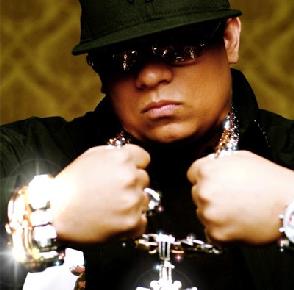 For seven years, sociologist Sudhir Venkatesh studied a Chicago crack-dealing gang from the inside and found a complex, tightly organized society bound by friendship and force. His new book is Gang Leader for a Day: A Rogue Sociologist Takes to the Streets. His findings explode some popular myths that I think often go unquestioned or unanalyzed, even for many of us who have seen drug dealing or dealers up close and personal. The biggest and most massive myth to my mind is the simple fact that 95% of the dealers on the street are working for LESS than minimum wage. The money they have belongs to their bosses, the 5 percent who make more than $100k a year. Thats why so many of them live with their moms or families. They can't afford to live on their own, they make such a pittance. A common theme in discussions about drug dealing is this: "what do we expect young people to do? How can education and being a citizen compete? The drug dealers are wearing nice clothes and rolling in nice cars". Hey, guess what? Their not!
For seven years, sociologist Sudhir Venkatesh studied a Chicago crack-dealing gang from the inside and found a complex, tightly organized society bound by friendship and force. His new book is Gang Leader for a Day: A Rogue Sociologist Takes to the Streets. His findings explode some popular myths that I think often go unquestioned or unanalyzed, even for many of us who have seen drug dealing or dealers up close and personal. The biggest and most massive myth to my mind is the simple fact that 95% of the dealers on the street are working for LESS than minimum wage. The money they have belongs to their bosses, the 5 percent who make more than $100k a year. Thats why so many of them live with their moms or families. They can't afford to live on their own, they make such a pittance. A common theme in discussions about drug dealing is this: "what do we expect young people to do? How can education and being a citizen compete? The drug dealers are wearing nice clothes and rolling in nice cars". Hey, guess what? Their not!The image of the fat cat drug dealer is a myth. They don't exist. 95% are making slave wages. The Wire as a show actually gets this right, as does Charles Duttons' The Corner. Those corner boys are living hand to mouth. The War on Drugs is partly predicated on the idea that it makes sense to go after these corner boys, lock them up and throw away the keys because they are enriching themselves and destroying our neighborhoods. No doubt, the corner boys are destructive, but the reality is that if they are working for less than minimum wage, the drug trade is not the lure of riches its portrayed as. When drug dealing, a deadly and difficult line of work for less than minimum wage is the route that so many of our youth take, its clear the prevalence of dealers in the streets of many urban cities is really a reflection of the black hole of economic opportunities they have become, If thats the reality, what does that say about the strategy the War on Drugs should be pursuing versus what it is?
I had a cousin who was a drug dealer and was eventually killed in a drive by shooting. I can remember him telling me how difficult it actually was being a dealer (he sold weed). You had to stay in one place all the time so people could find you, people stuck him up for his money and as he bitterly complained once "ain't nobody buying dope every day". There were plenty of days he sold little or nothing and he lived a poverty stricken existence.
So when the candidates are talking about the War on Drugs and what they are going to do to win it, ask them what economic development strategy is in their arsenal for America's urban communities. Jobs and economic development is the real front line in the War on Drugs.